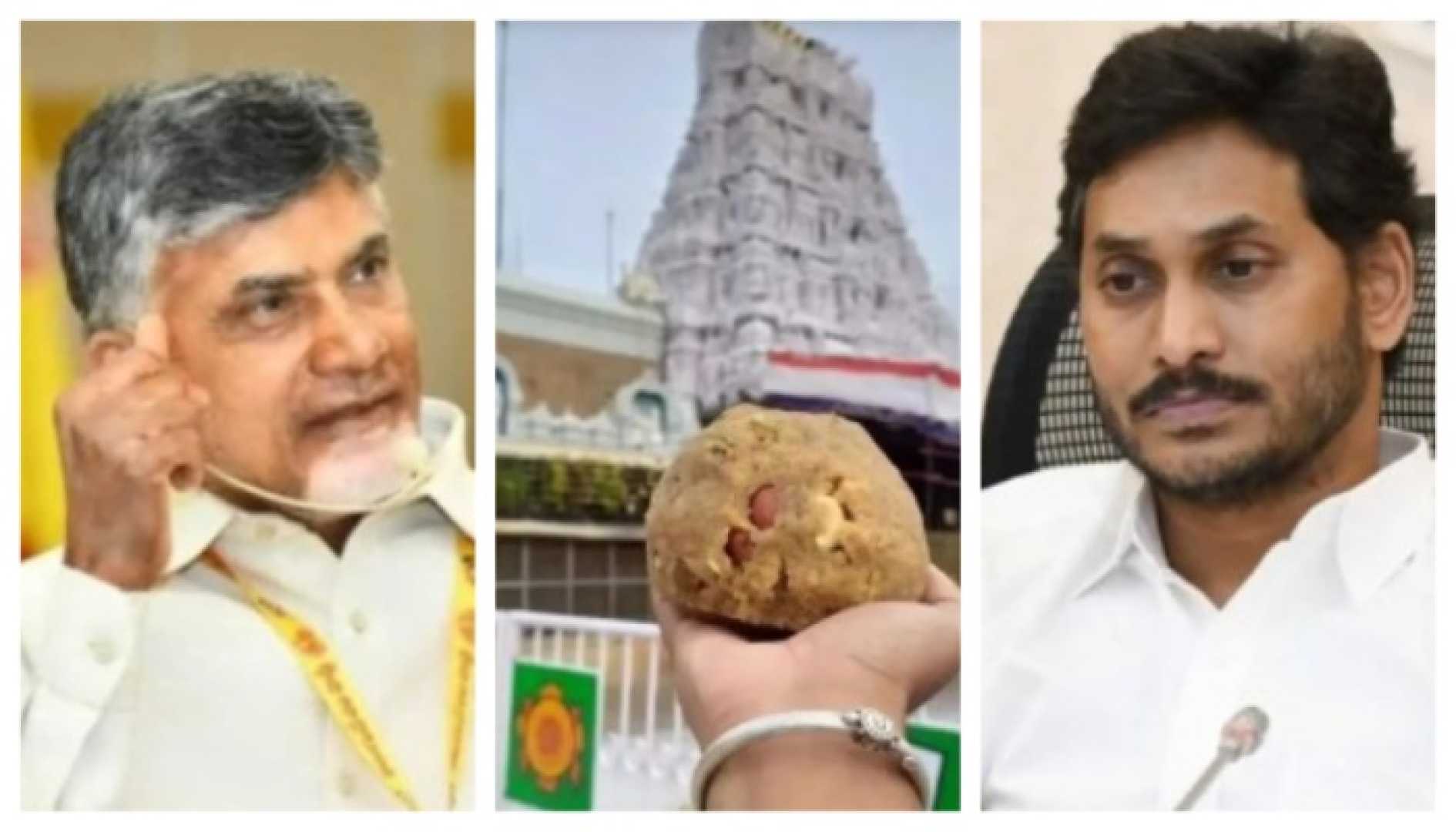News
Controversy Surrounds Quality of Tirupati Temple Laddus

A recent laboratory report has revealed the use of non-traditional ingredients such as beef tallow, fish oil, and palm oil in the preparation of laddus distributed as ‘prasad’ at the renowned Sri Venkateswara temple in Tirupati. This disclosure has sparked significant controversy and debate.
On a recent occasion, Andhra Pradesh Chief Minister N Chandrababu Naidu accused the previous YSR Congress Party (YSRCP) government of using substandard ingredients, including animal fat, in the revered Tirupati laddu. The YSRCP has strongly denied these allegations.
The lab report indicates that the ghee used in making Tirupati laddus during the YSRCP regime contained traces of animal fats, such as beef tallow and fish oil. This revelation has led to widespread outrage, with many perceiving it as a disrespect to religious sentiments.
An analysis was conducted by the Centre of Analysis and Learning in Livestock and Food (CALF) at Gujarat’s National Dairy Development Board. It found animal fats, including beef tallow and lard, in the ghee used during YSRCP’s administrative period, adding to the contentious nature of this issue.
State IT Minister Nara Lokesh also voiced criticism towards the YS Jagan Mohan Reddy government, expressing astonishment over the replacement of ghee with animal fat in the sacred Tirupati prasadam. This has further fueled political discussions, notably affecting the relationship between the Telugu Desam Party (TDP) and YSRCP.
At a National Democratic Alliance (NDA) meeting in Mangalagiri, Chief Minister Naidu reported that during the YSRCP’s tenure, animal fats were used instead of cow ghee, deeming it a serious affront to the sanctity of Lord Venkateswara. He stressed the restoration of religious dignity under his government by reinstating pure ghee practices and enhancing hygiene standards.
In response, YSRCP’s YV Subba Reddy, a former chairman of the Tirumala Tirupati Devasthanams (TTD), dismissed Naidu’s claims as “baseless” and accused him of spreading misinformation about temple practices for political gains. Reddy challenged Naidu to substantiate his claims through a public oath, underscoring the political implications of these accusations.
Ghee quality has become a central concern in this controversy. The TTD, responsible for the temple’s operations, has been actively ensuring high standards for prasad ingredients to prevent substandard quality. Official reports indicate that several substandard ghee batches were rejected by the TTD.
Between July 2022 and June 2023, the TTD rejected 42 truckloads of cow ghee, each unable to meet the required standards. This non-compliance resulted in blacklisting the suppliers involved. TTD Executive Officer J Syamala Rao highlighted that one supplier had mixed vegetable oils with ghee, leading to a complete ban of the supplier.
To ensure only top-quality ghee is used, TTD has enforced strict quality control measures. This includes testing each consignment for moisture content and fatty acid composition. Delivery trucks are now required to maintain temperatures to preserve the ghee’s freshness during transport.
In a move to further enhance quality assurance, TTD announced plans to establish an in-house Food Safety and Standards Authority of India (FSSAI) certified laboratory at Tirumala by July 2024. This new facility aims to expedite testing procedures and reduce reliance on external labs, enhancing overall operational efficiency.












